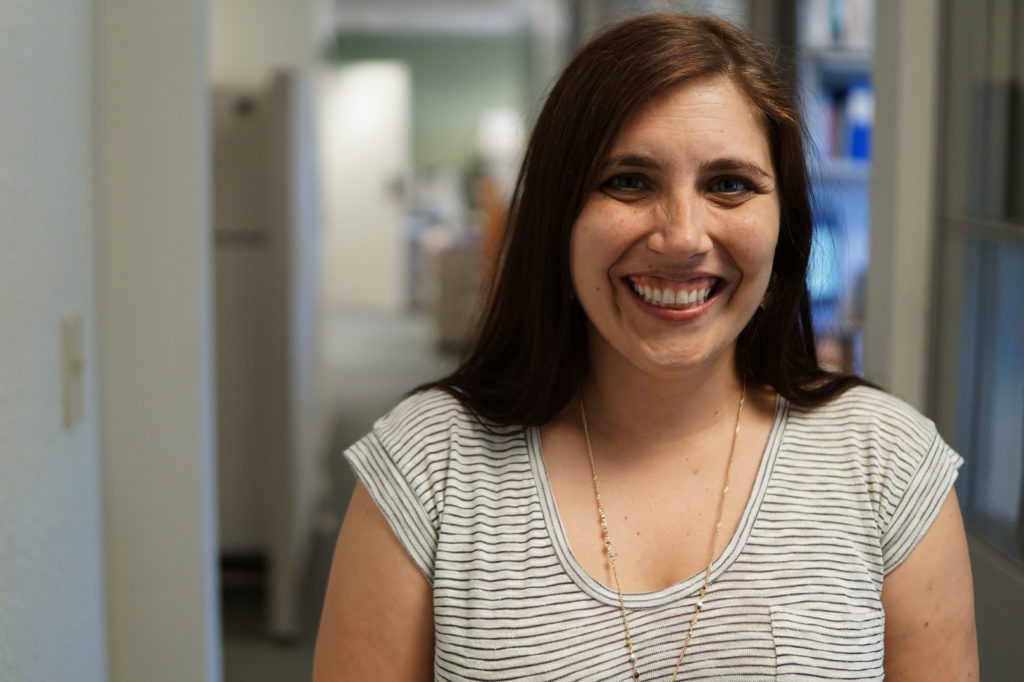It has been nearly two months since a white supremacist drove his car into a group of progressive demonstrators, killing one and injuring many during the Unite the Right rally in Charlottesville, Va. The violence that occurred has led to subsequent calls for action against hate crimes throughout the country.
Seattle University attempted to join the conversation surrounding hate speech on Sept. 26 with a conversation sponsored by the Office of the Provost, College of Arts and Sciences, and Matteo Ricci College titled, “Is Hate Speech Free Speech?” The event included Communications Professor Caitlin Ring-Carlson, Political Science Professor Erik Olsen and Philosophy Professor Jason Wirth as they discussed the undermining dangers of hate speech, through the justification of free speech and the problems of prosecuting hate speech within our legal system.
The event worked as an introduction, giving an analytical stance on the issue, although the panelists openly admitted to never personally experiencing hate speech. According to Seattle U Public Safety, incidents and reported hate crimes on Seattle U’s campus alone doubled in 2016 and 2017 compared to the prior two years.
Seattle U Public Safety reports there were only two cases of assault identified with criminal bias in 2014 and in 2015. Criminal bias is defined as discriminatory motivations adjacent to campus, as well as being able to identify a victim and the level of harm done.
However, a surge occurred in 2016 with 17 incidents on campus. One was deemed criminal racially-based bias, and the other 16 were classified as being of non-criminal bias. Non-criminal bias means it was documented, but did not meet the official requirements of being classified as a hate crime.
Eight of these incidents were recorded around the time of the student occupation of the Matteo Ricci College, which was a protest directed toward dismantling institutional racism, sexism, ableism and anti-LGBTQ+ rhetoric within the college.
These eight instances between June and December mostly included student reports of swastikas being written on their whiteboards within the dorms. 2017 had a total of 10 incidents, with nine classified as non-criminal bias, and one being ethnicity-based criminal bias.
Many of these non-criminal actions consisted of symbols or text being found on etchings, graffiti or stickers, during telephone calls and in-person intimidation. These actions are not technically hate crimes because a singular person was never targeted, nor was the offender caught.
During the event, the three professors gave their professional opinions and explained the paradox of the “free” circulation of ideas. The question always circled back to whether it is possible to have all-encompassing free speech when some forms of speech can dominate and muffle the speech of others; the legal standing is so vague that any action against or for hate speech can be justified.
Olsen explained that free speech within the setting of public forum, expressed in a civilized manner to support democracy, can be acceptable, but he draws the line when marginalized groups are being terrorized.
“Freedom of speech also requires freedom from intimidation, freedom from threats, freedom from domination,” said Olsen.
At the talk the question of whether the opinion of an oppressed individual would be heard fairly, even without hate speech present was raised.
“Privilege would be that ideas are just out there freely circulating, protected and don’t have background conditions that determines who speaks, what gets heard, what gets covered, what’s taken seriously,” said Wirth.
He dissected the term democracy even further and asserted that equal weight is never given when big money, racism and other influences are present within the American culture.
Ring-Carlson took the conversation in a different direction afterwards, saying that if the state cannot be trusted to make these decisions, then many times it falls on people to act on their own.
Ultimately, the conversation regarding hate speech drew an intersection between the political and the ethical.
“Just because something is legal doesn’t make it right,” Ring-Carlson said.
Erika may be reached at
esilva@su-spectator.com









